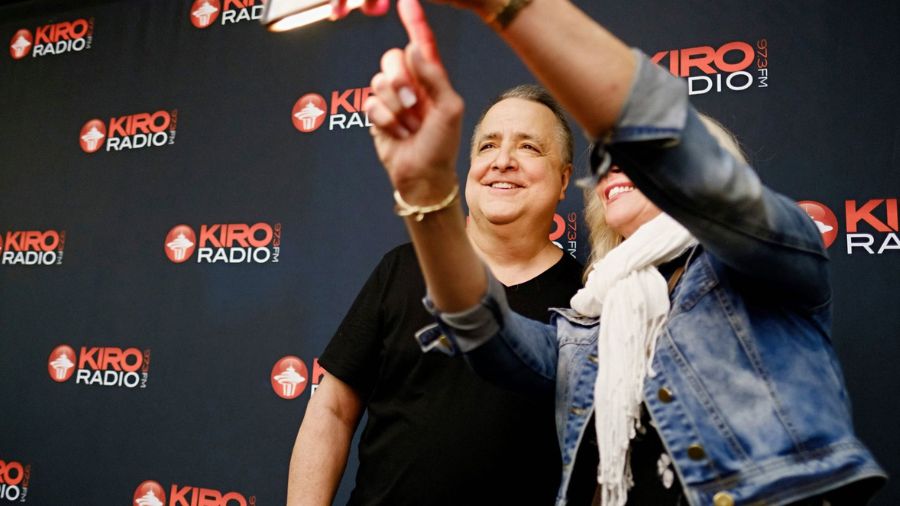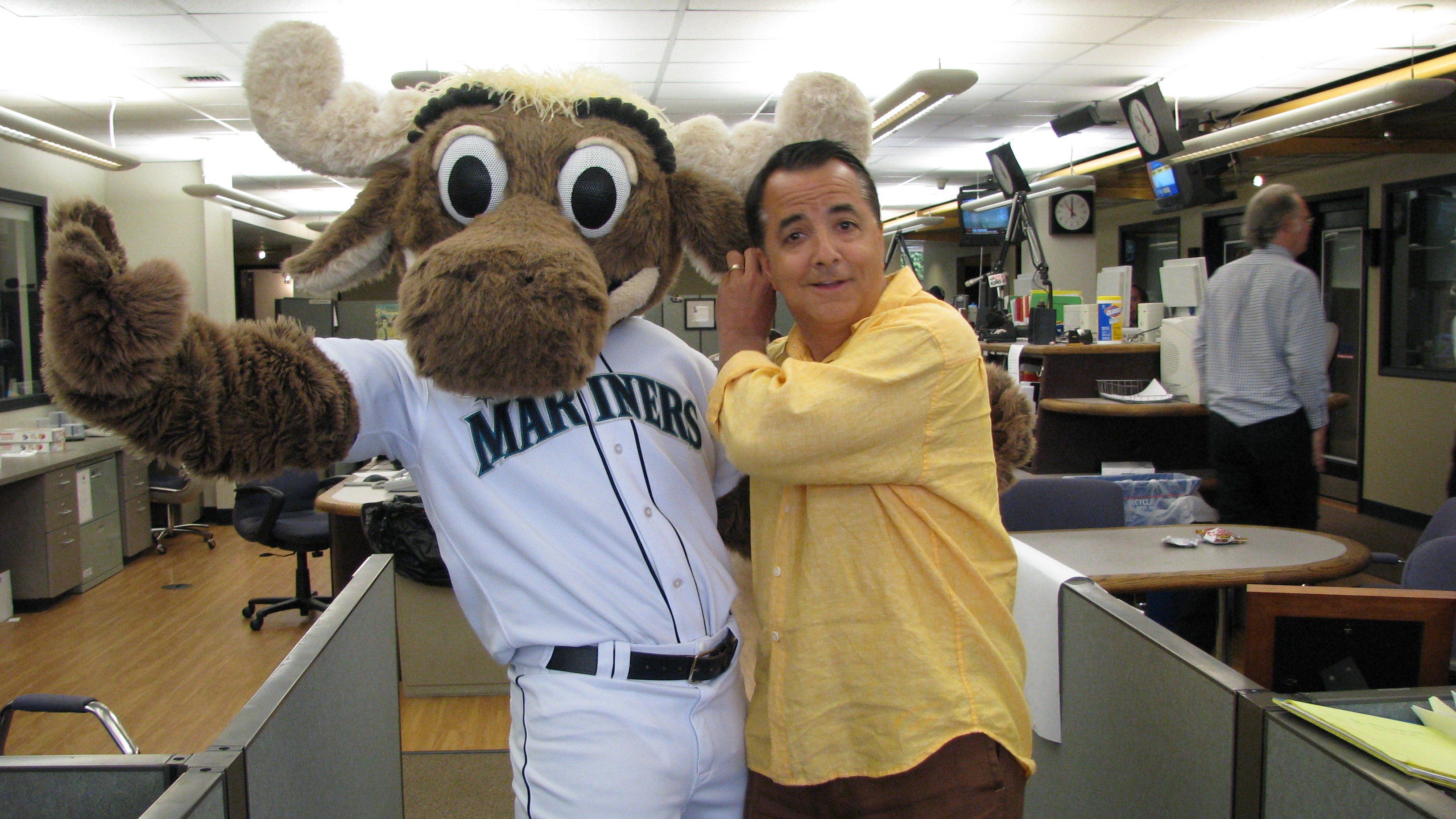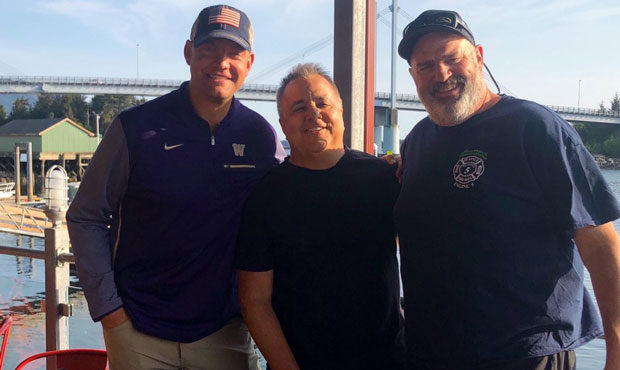Former candidate Christopher Rufo says he won’t run for office again
Oct 14, 2019, 5:05 PM

Chris Rufo speaks at the Washington Policy Center Young Professionals Dinner on Friday at the Bellevue Hyatt. (Nicole Jennings/KIRO Radio)
(Nicole Jennings/KIRO Radio)
One-time Seattle City Council candidate Christopher Rufo does not plan to ever run for office again — but that certainly does not keep him out of the battles over homelessness and drugs raging in Seattle.
Speaking to KIRO Radio before he took the stage at the Washington Policy Center Young Professionals Annual Dinner on Friday at the Bellevue Hyatt, Rufo said that he can do far more to effect change in his role as director of the Documentary Foundation and contributing editor of City Journal.
‘Seattle Trash Map’ argues Ballard is ‘ground zero’ for trash problem
“It was a great experiment, I’m really glad that I did it, I learned a lot of lessons, but I think that my voice is most useful, and will have the most impact, in what I’m doing now — doing research, doing writing, doing media, continuing to make documentaries,” he said.
Since dropping out of the city council race less than two months after beginning his campaign in autumn 2018 — due to what he described as bullying and harassment of his family — Rufo has not shied away from in the political spotlight. This past April, he produced a filmed interview with a woman who was raped by a homeless man in a Ballard car dealership bathroom the previous year. In May, he took part in an ideologically diverse Washington Policy Center panel to discuss KOMO 4’s “Seattle is Dying.”
Rufo’s view that laws against street camping must be enforced is one that has earned him the label of radical and harsh among some Progressive Seattle activists, but he said that allowing people to live and die on the streets is the very opposite of the “buzzwords” used by these activists, such as “compassion” and “inclusion.”
“This policy of unlimited compassion really turns into a policy of unlimited permissiveness … for the vast majority of people, by changing the public stance around homelessness, around public camping, around drug consumption, you can really solve a lot of that problem,” he said.
He noted that across the major West Coast cities — L.A., San Francisco, Portland, and Seattle — two-thirds of homeless people refuse services that are offered. How to help these people, he said, is the “million-dollar question” that politicians in power have so far not answered.
While Rufo advocates for drug rehabilitation and mental health treatment for every individual who needs it, and believes that this would make the greatest difference for most of the people on Seattle’s streets, he does believe that the city’s so-called “prolific offenders” — those with a long history of crimes who continue to be let out of jail repeatedly — need to serve time behind bars. This incarceration would also include any needed services.
“If someone is committing dozens of violent crimes, there has to be a point where we need to say that public safety is paramount,” he said. “On crimes, especially of violence, we have to maintain incarceration as an option.”
Rufo plans to release a policy plan in the next month with ideas from cities around the United States — most of which are run by Democrats.
How Seattleites can get involved
How do Seattle’s problems get solved? Among activists across the political spectrum, much attention is given to next month’s city council election — but in Rufo’s view, electing a new city council is not the only critical step.
“What we really need is not necessarily people to run for office — that’s important — but right now what we really need is to attack the fundamentals of the ideological regime that exists in this city today,” he said.
So, Rufo said, if ordinary residents want to be part of the solution to Seattle’s greatest challenges, the best thing they can do is not be afraid to speak up.
“The biggest problem in a city like Seattle is that there is a culture of fear — people are scared to speak out because they don’t want to be demonized, they don’t want to be name-called, they don’t want to be isolated,” he said. “There is a culture of intellectual and social intimidation that prevents normal, everyday people — old-school, Democrat liberals who are more moderate — from speaking out. And I think the number-one thing that anyone can do is to take very small steps to not participate in that culture.”
What this looks like in everyday life is having the courage to bring up your viewpoint in conversations with friends, colleagues, and neighbors that center around Seattle’s homelessness crisis. In turn, listen to others when they share their thoughts and experiences.
“If you’re having a conversation, and there is an ‘accepted way of thinking’ that you disagree with, politely and civilly say, ‘You know, I actually see this a different way,'” he said. “If we can replicate enough of those conversations … that can make a huge difference.”
It’s a daunting idea, he acknowledged, since the topic of homelessness is one that is hugely polarizing in Seattle.
“The issue is polarizing because it is a losing issue for the political establishment in these cities,” he said. “It’s really an abject moral failure on behalf of our political leadership … and the reason why people are quick to demonize is because there’s a high level of defensiveness, because they know that on this issue they’ve failed.”
“If you say, ‘We need to restore public order,’ they’ll try to demonize you,” he continued. “But then when you ask them, ‘What will you do?’ They have no answer. And in effect, their policy is signaling that they’re content with 12,000 people on the streets of King County.”













